

Vanuatu is not new to natural disasters. The Pacific island nation has been hit with earthquakes, volcanoes, and cyclones. But NGOs warn that it is the children who feel the full brunt of the crises.
Photo/supplied
Thousands of children at risk after devastating earthquakes in Vanuatu
NGOs warn that an estimated 40,000 tamariki are in need of humanitarian assistance.


Our generosity is our strength but we must spend wisely this Christmas - expert
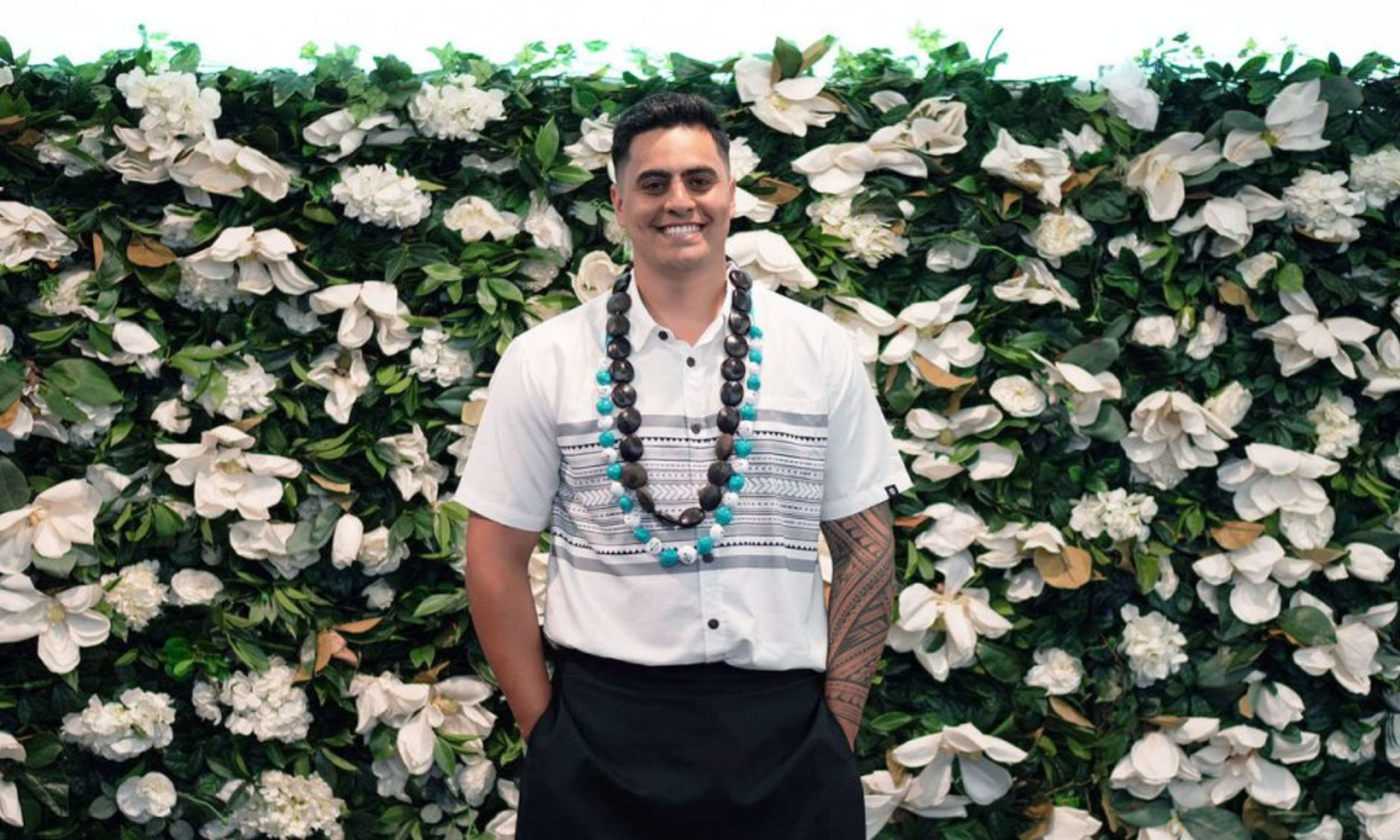
Excellence and possibility: Meet the new face of Pacific medicine in Aotearoa

Top 10 Pacific Island songs you need on your summer playlist in 2025

Operation Xmas Drop 2025: US and allies deliver hope to remote Pacific communities

Our generosity is our strength but we must spend wisely this Christmas - expert

Excellence and possibility: Meet the new face of Pacific medicine in Aotearoa

Top 10 Pacific Island songs you need on your summer playlist in 2025
The situation remains particularly precarious for tens of thousands of children in Vanuatu, many of whom have been separated from their families.
An estimated 40,000 children need humanitarian assistance after two devastating earthquakes hit Vanuatu's capital, Port Vila, this week.
The NGOs say the children need shelter, food, healthcare, and access to education.
On Tuesday, the first quake - a 7.3-magnitude - struck at a depth of 10 kilometres. Less than 24 hours later, a second earthquake (measuring 6.1) hit, followed by several major aftershocks.
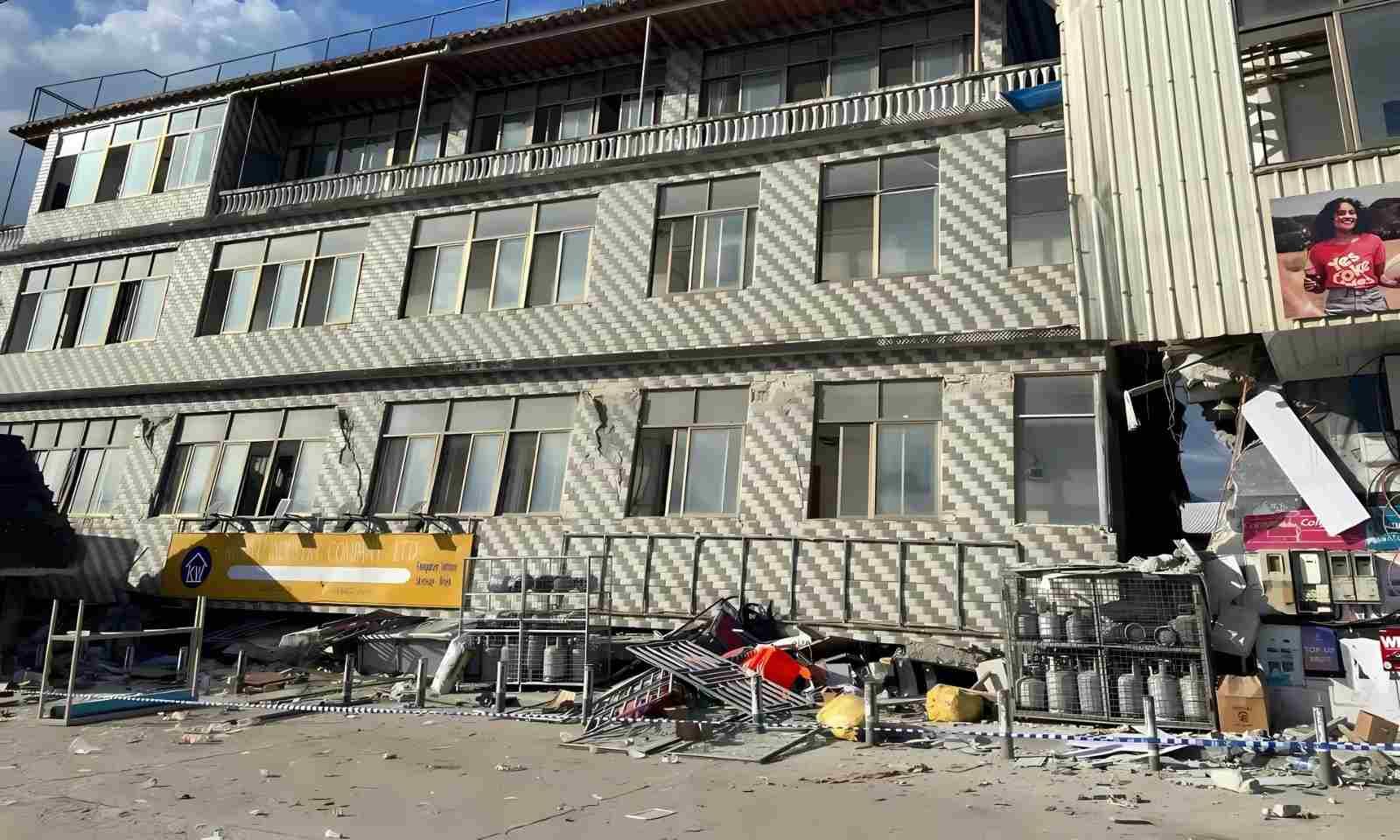
A building on the outskirts of Port Vila, near the airport, damaged by the recent earthquakes in Vanuatu. Photo/Save the Children
As of now, authorities have reported 16 deaths, with more than 200 people injured.
Rescue teams continue to search for survivors, and police are urging residents to report any missing persons.
UNICEF has dispatched community first-aid kits, Interagency Emergency Health Kits (IEHK), and tents to maintain essential health services.
The UN agency also provides safe water to healthcare facilities.
Eric Durpaire, UNICEF Pacific’s Chief of Vanuatu Field Office, says many buildings, including hospitals, have sustained significant damage.
Landslides across the island have severely affected key roads and bridges connecting the airport and the main seaport.
"Additionally, telecommunication networks in most areas are either down or intermittent," Durpaire said.
“The immediate priority is to reach children and families with the life-saving support they need.
"UNICEF is on the ground, working with government, civil society organisations and other development partners to support the response efforts,” Durpaire said.
"As needs are confirmed, UNICEF will continue to support children and families with life-saving interventions that include restoring water supply, distributing critical supplies and mobilising partners to provide access to safe water and hygiene, nutrition and health services, education, child protection and social."
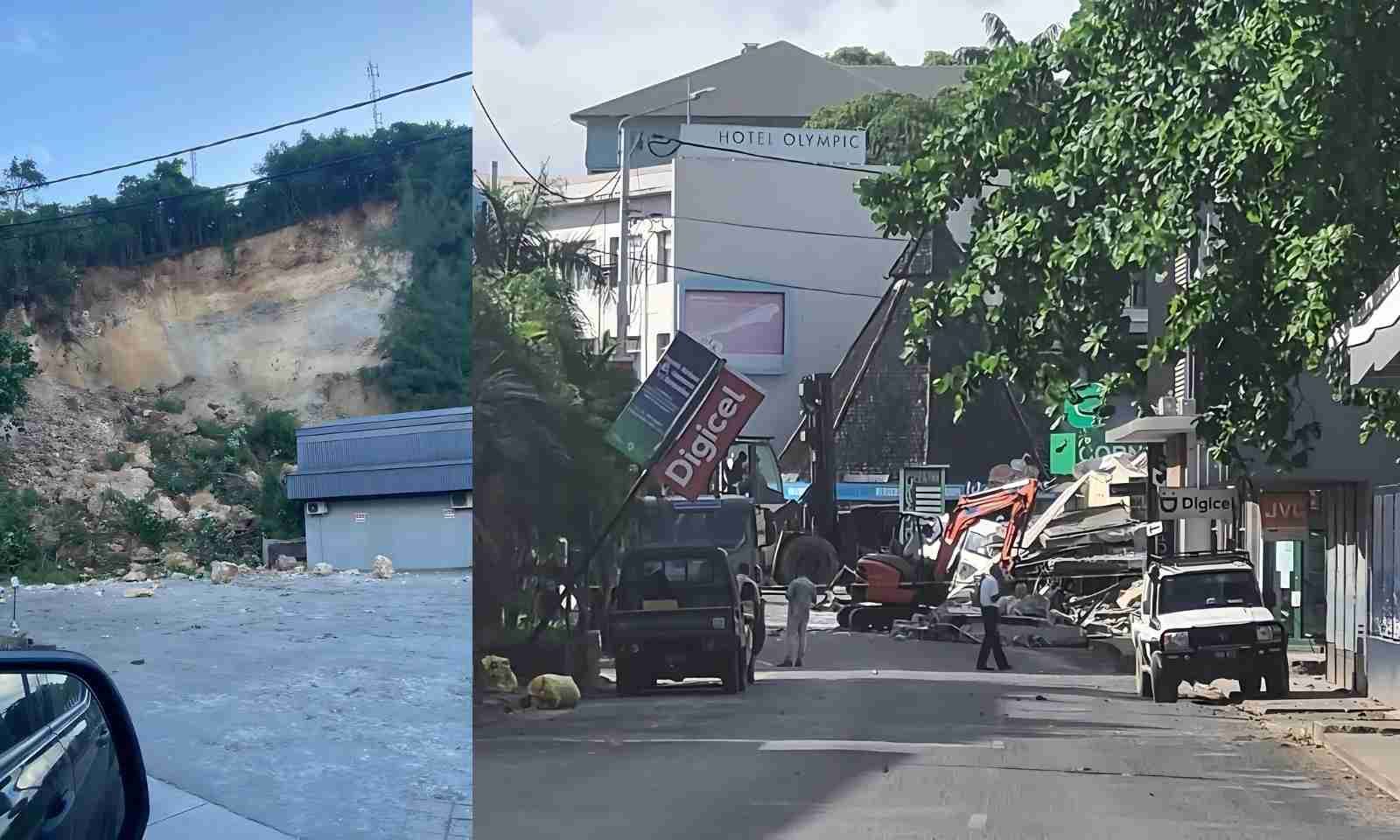
Pictured left, a landslip at a quarry outside Port Vila, and right a collapsed building in the capital photographed three hours after the first quake struck. Photos/Save the Children
Vanuatu is 2900km north of Aotearoa, New Zealand, with a population of 300,000.
The UN agency has reported that more than 80,000 people have been affected by the disaster.
It reported children suffer the most in disaster situations and tend to make up the most significant numbers who don't survive.
A state of emergency has been declared for a week, including a daily curfew from 6pm to 6am.
Kim Koch, Save the Children's Pacific Regional Director, says rescue efforts are ongoing.
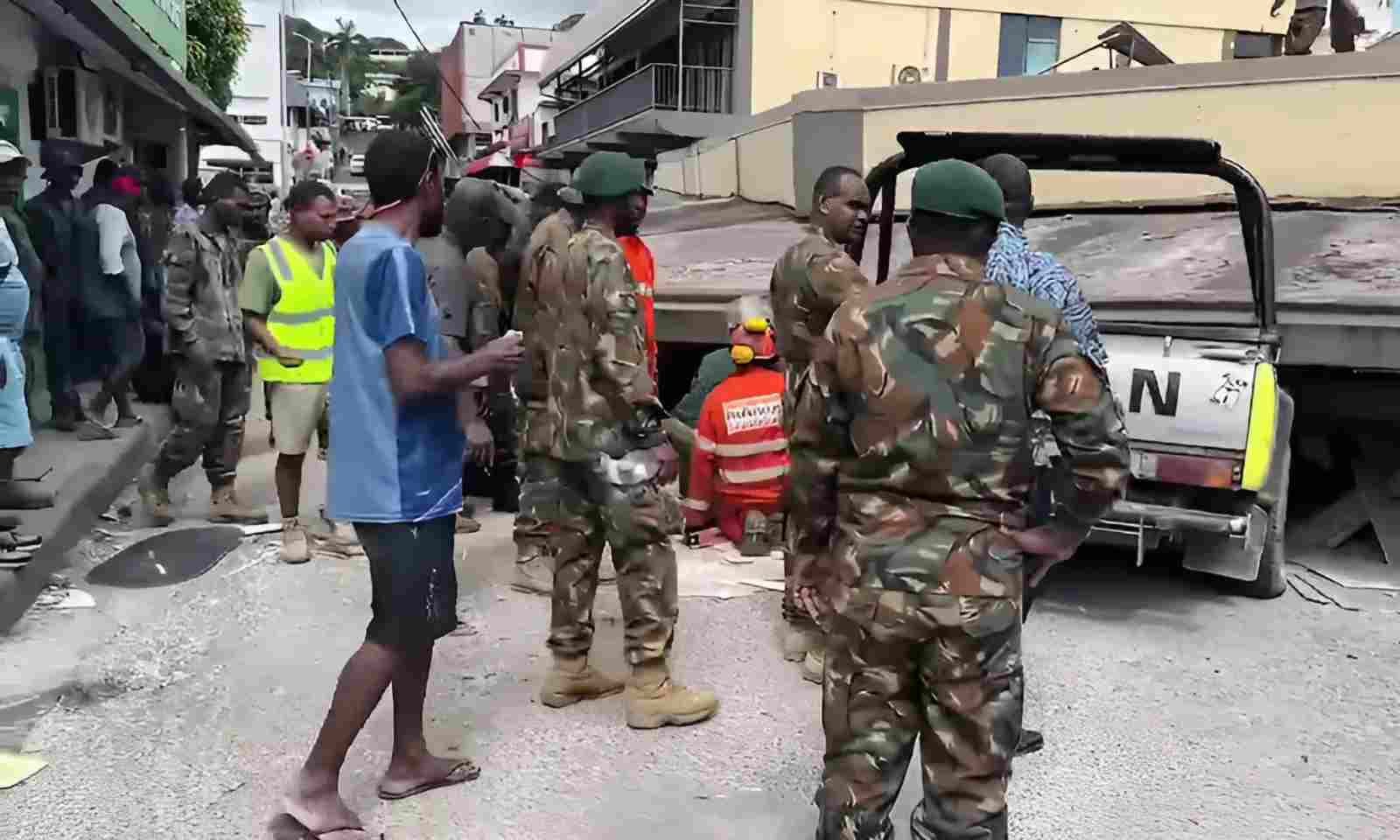
Local rescue teams search for survivors in the rubble. Photo/Facebook Michael Thompson
"That's been a long road, and the focus has definitely been on search and rescue over the past few days," Koch said.
"There's extensive damage to Port Vila. Infrastructure buildings have been flattened and ruined. Roads and bridges have been destroyed.
"We know there's been landslides that have also impacted the area, including the port.
"What we know is that water and power are still patchy. Some water was being restored as of yesterday [Thursday] to the city, but it's not everywhere yet," Koch said.
She said communications were still "patchy," and the NGO had struggled to contact people on the ground.
Watch Kim Koch's full interview below.
She said residents in Port Vila were struggling to communicate with each other.
"40,000 kids have been impacted in this situation and need assistance. It's a severe crisis.
"Vanuatu's National Disaster Management Office is supporting the communities that need it. So, we're working in partnership with the government and trying to do what's needed in the short term and start thinking about the long-term recovery.
"For us, the first thing that we're looking at is getting supplies out to families and making sure that they have a safe place to live. A lot of houses have been impacted."
Koch said they are trying to ensure shelter - safe shelter, tents, and household supplies.
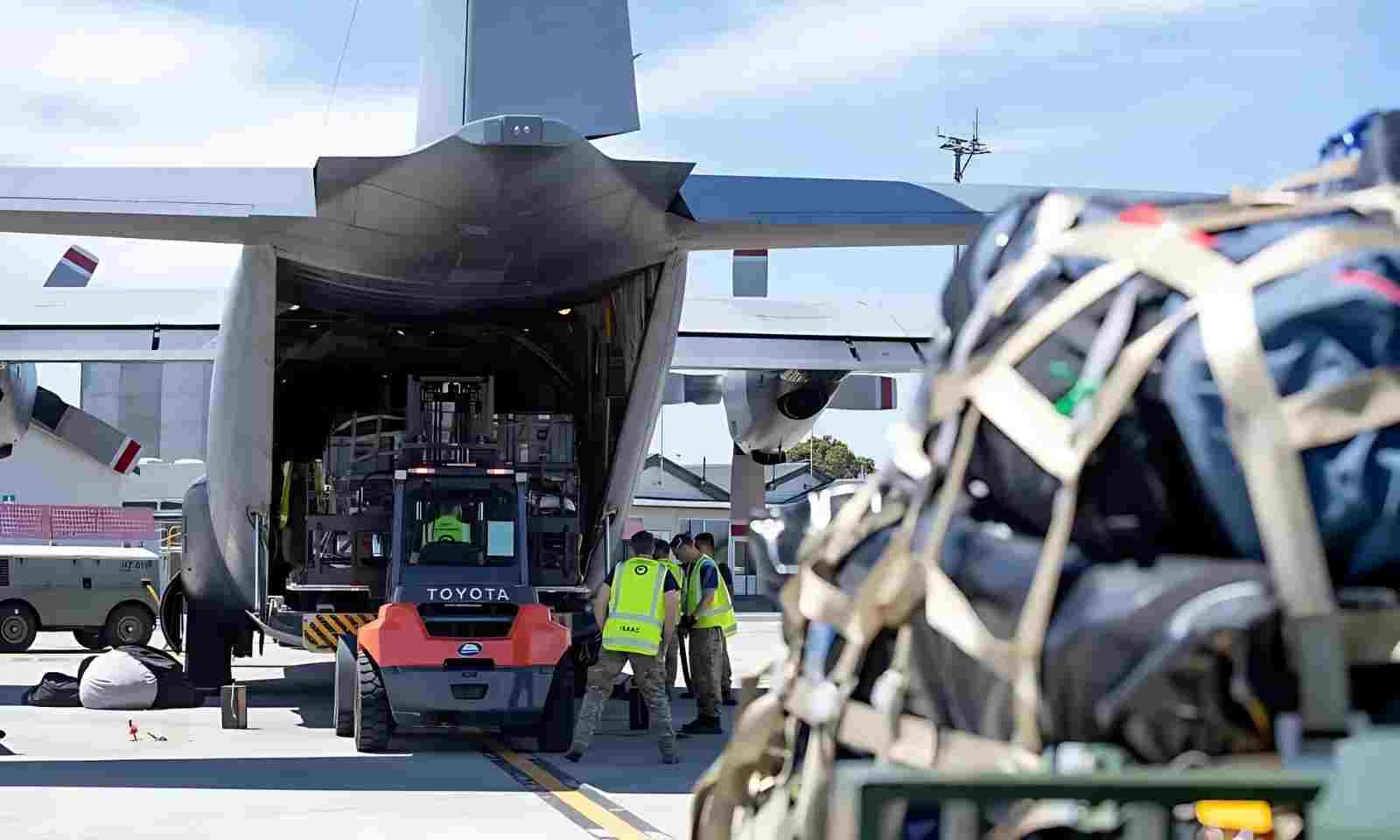
Photo/NZ Defence Force/Sergeant Maria Eves
She said people are asking for safe and clean water. Damage to reservoirs supplying water to Vila has led the government to issue "boil water" notices for the entire capital.
"Our teams on the ground are trying to make sure that people can get water, that they have things like jerry cans to access clean water in this period where water is just scarce.
"We're also trying to think specifically about what this means for kids. Kids are scared. It was a really scary situation.
"It's a stress-inducing experience for the kids and their parents. So, we're trying to find ways to get them to safe spaces and make sure that they can get some psychological support in this period. And that support needs to be ongoing as well."
Save the Children is launching an appeal, and donations can be made here. The Red Cross also has an appeal, and donations can be made through their website here. UNICEF says New Zealanders can donate to help children and their families in Vanuatu with their appeal at https://www.unicef.org.nz/appeals/vanuatu-earthquake-appeal.
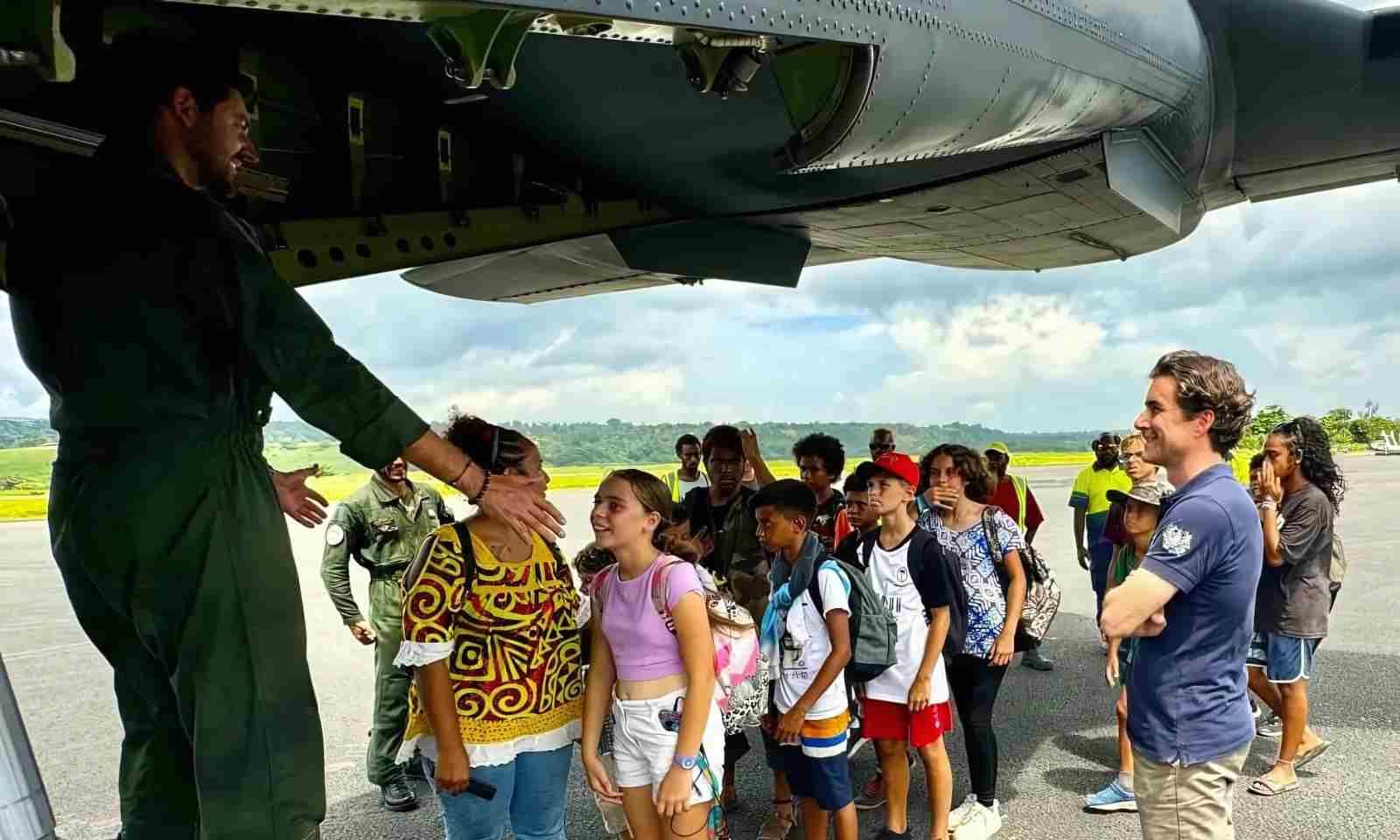
A group of schoolchildren boarding a military aircraft to be repatriated to New Caledonia after the Vanuatu earthquake. Photo/French Embassy in Vanuatu
Meanwhile, 20 New Caledonian children who suffered the shock of the earthquake were repatriated from Vanuatu onboard a French military CASA aircraft on Thursday.
RNZ Pacific reported that the group of children, aged between 8 and 14, are from Northern New Caledonia (Népoui, Koné, Pouembout, and Poia) and were visiting Vanuatu as part of a holiday camp organised by their sports association.
The report said Melissa Rangassamy told local Radio Rythme Bleu upon arrival in Nouméa that the group was having a picnic on a Port Vila beach when the ground started to shake violently.
"Children were falling to the ground, everyone was falling all around, it was panic. We told the children not to move. At the time, they were in shock.
"We gathered them all, put them on the buses, and went straight to a higher place. It's so good to come back home."
The French High Commission in New Caledonia said a special psychological assistance unit was available to anyone who needed it.
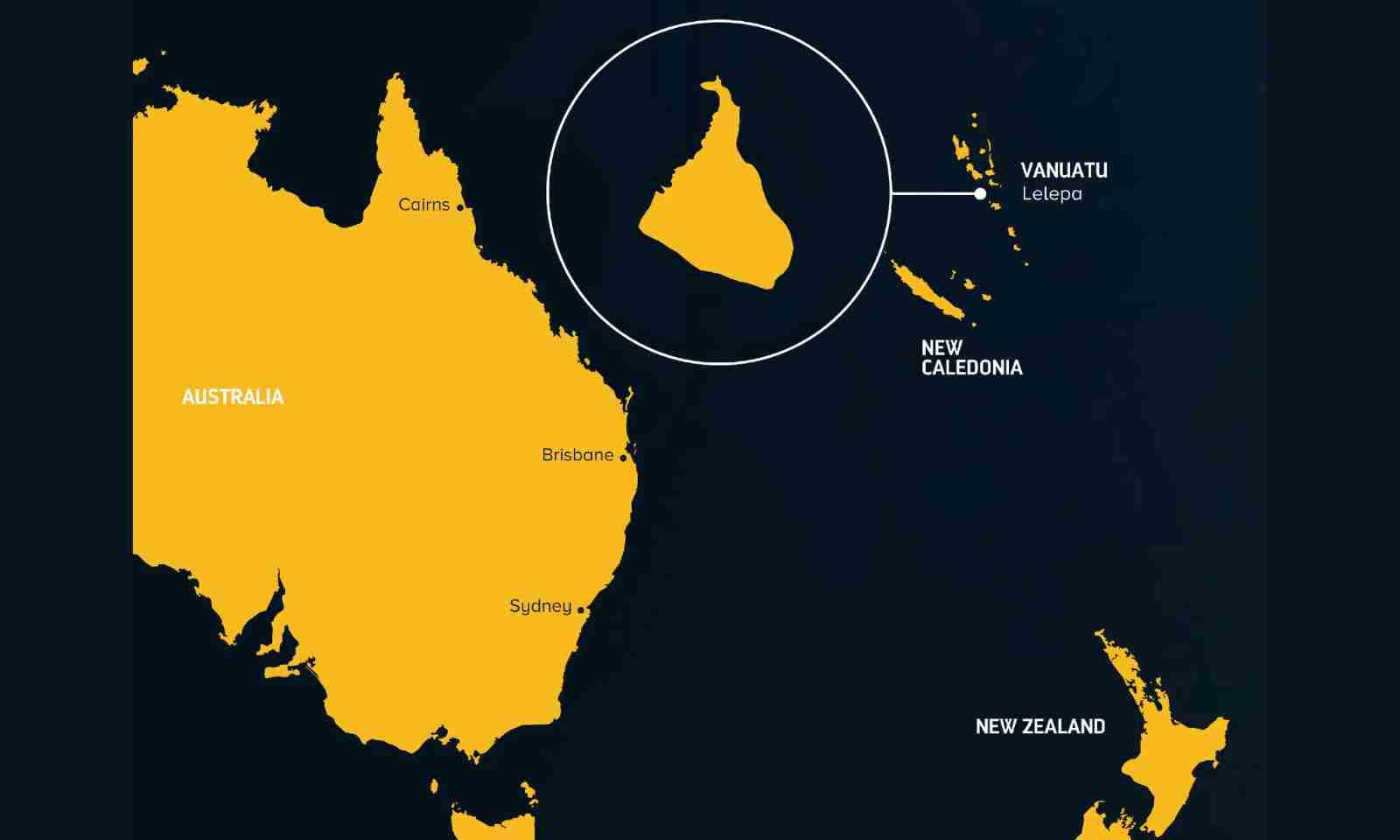
Photo/supplied